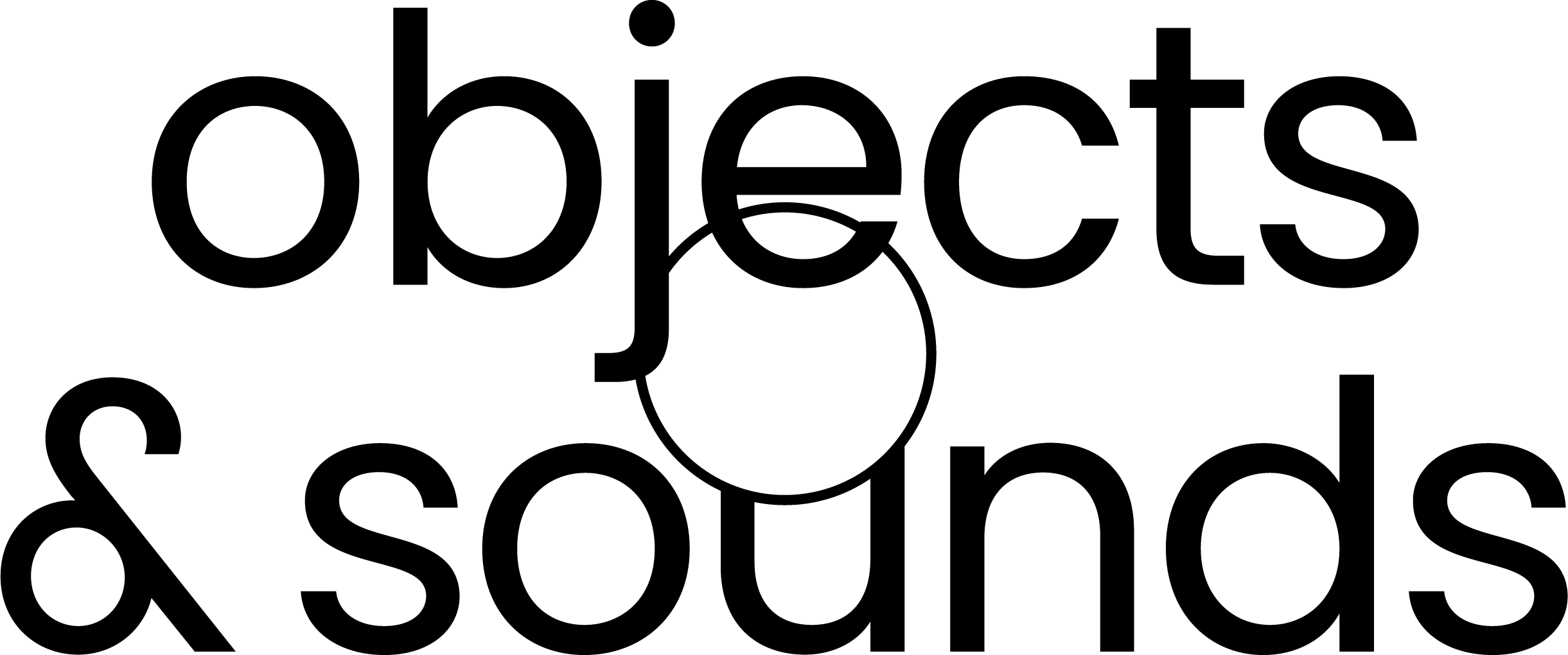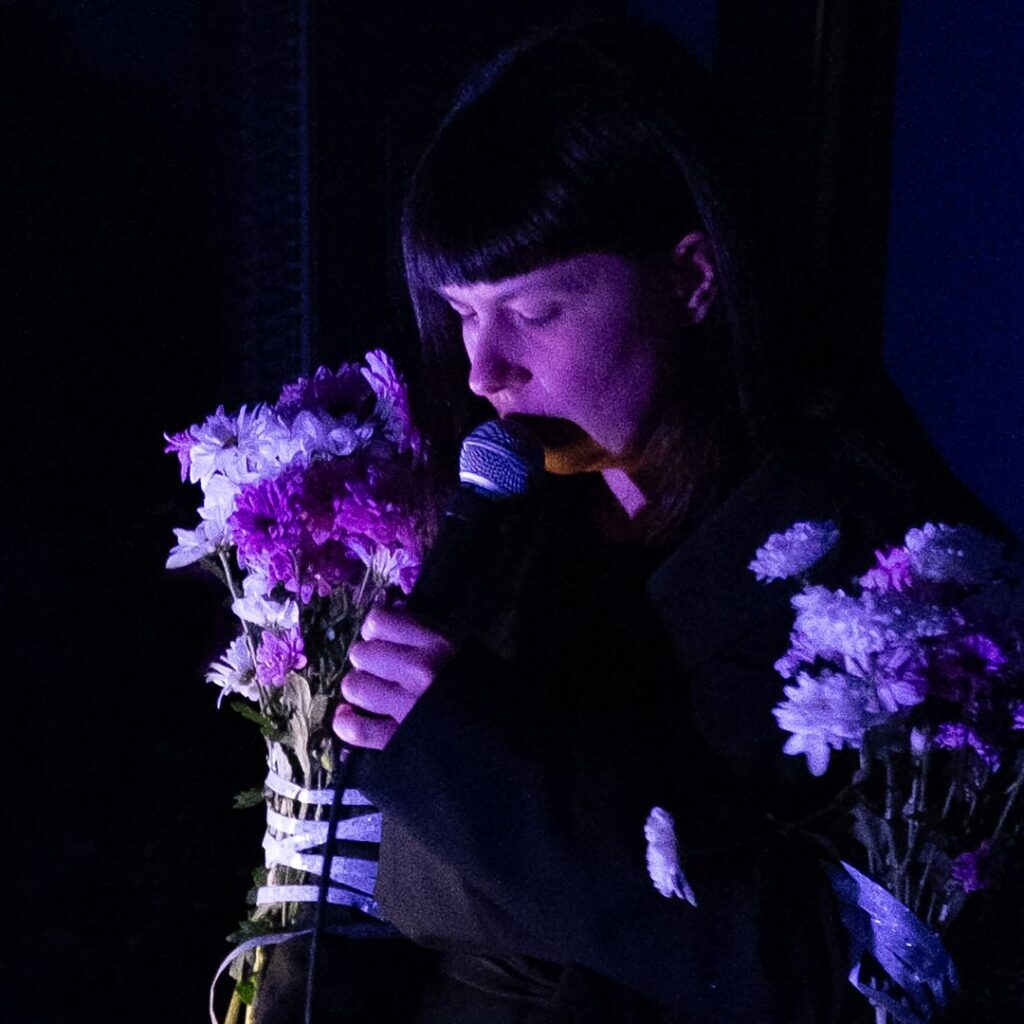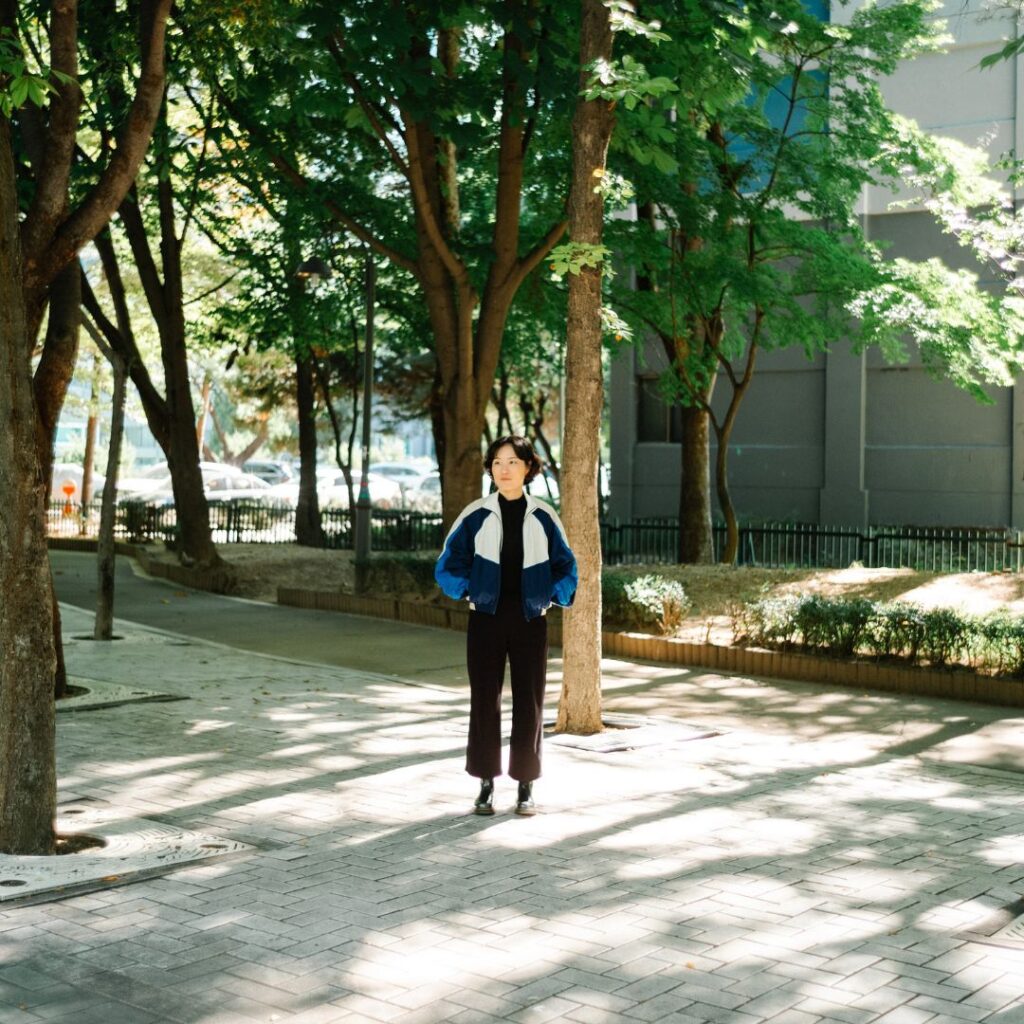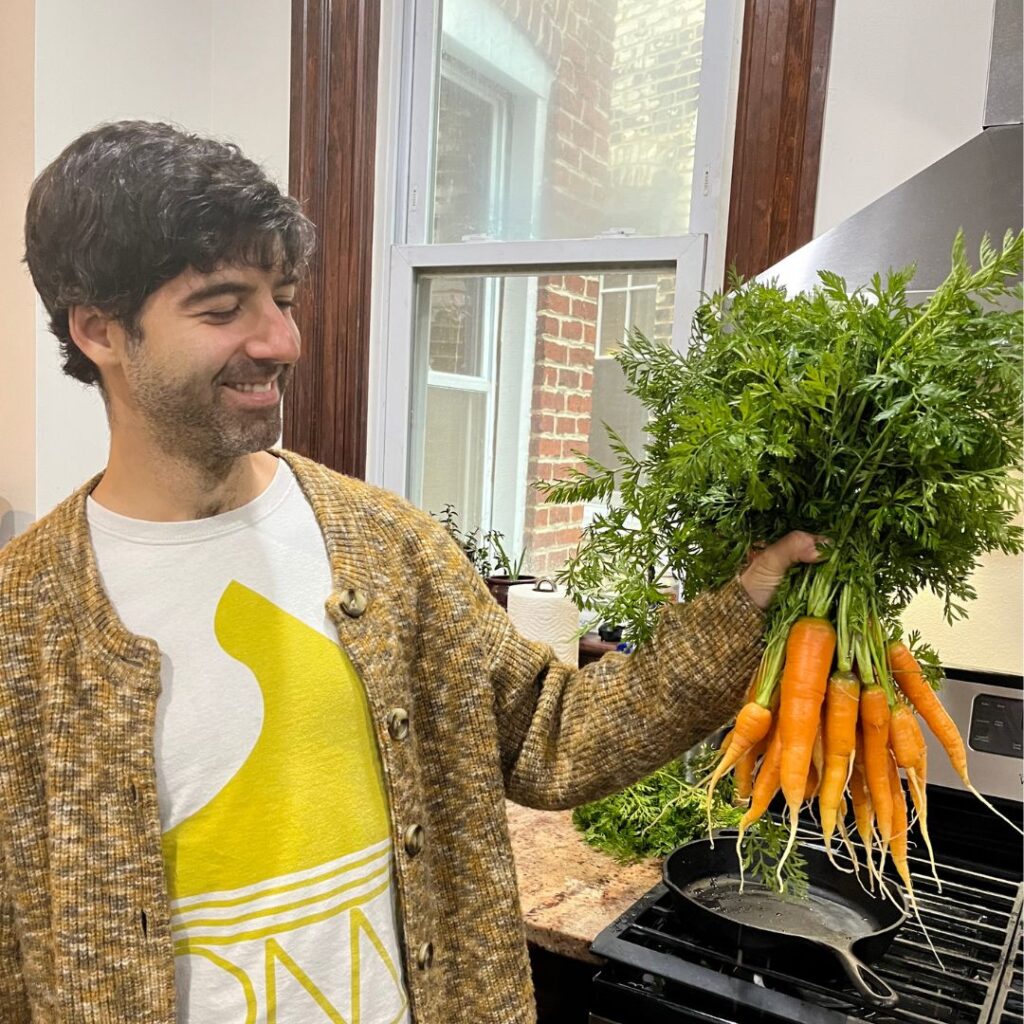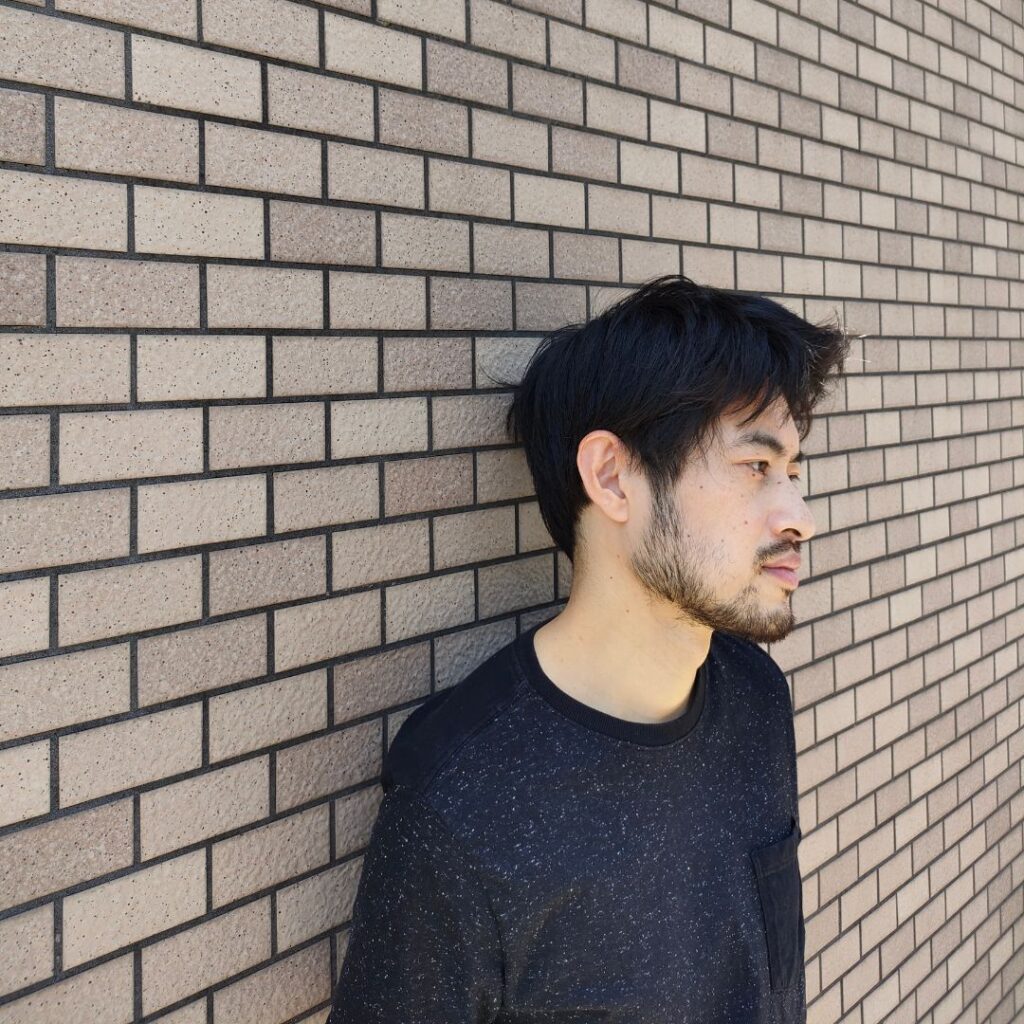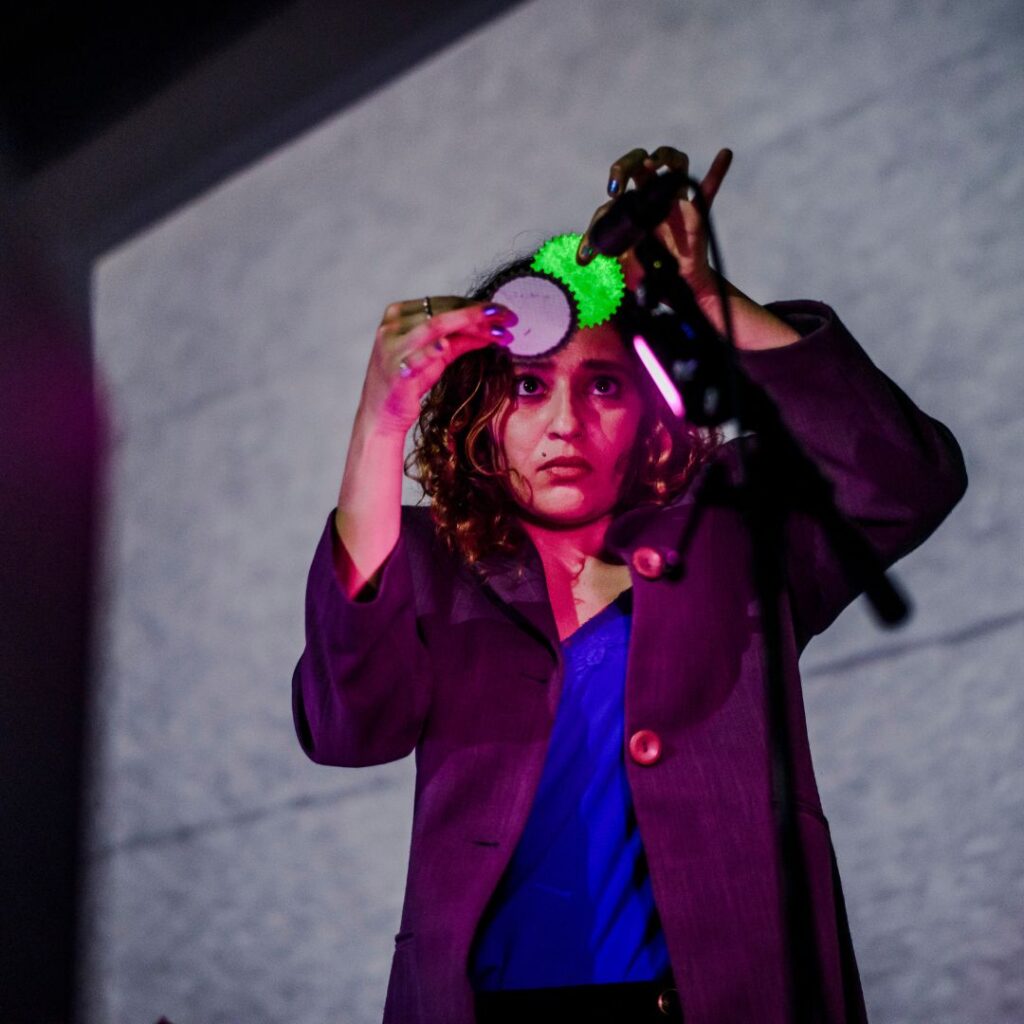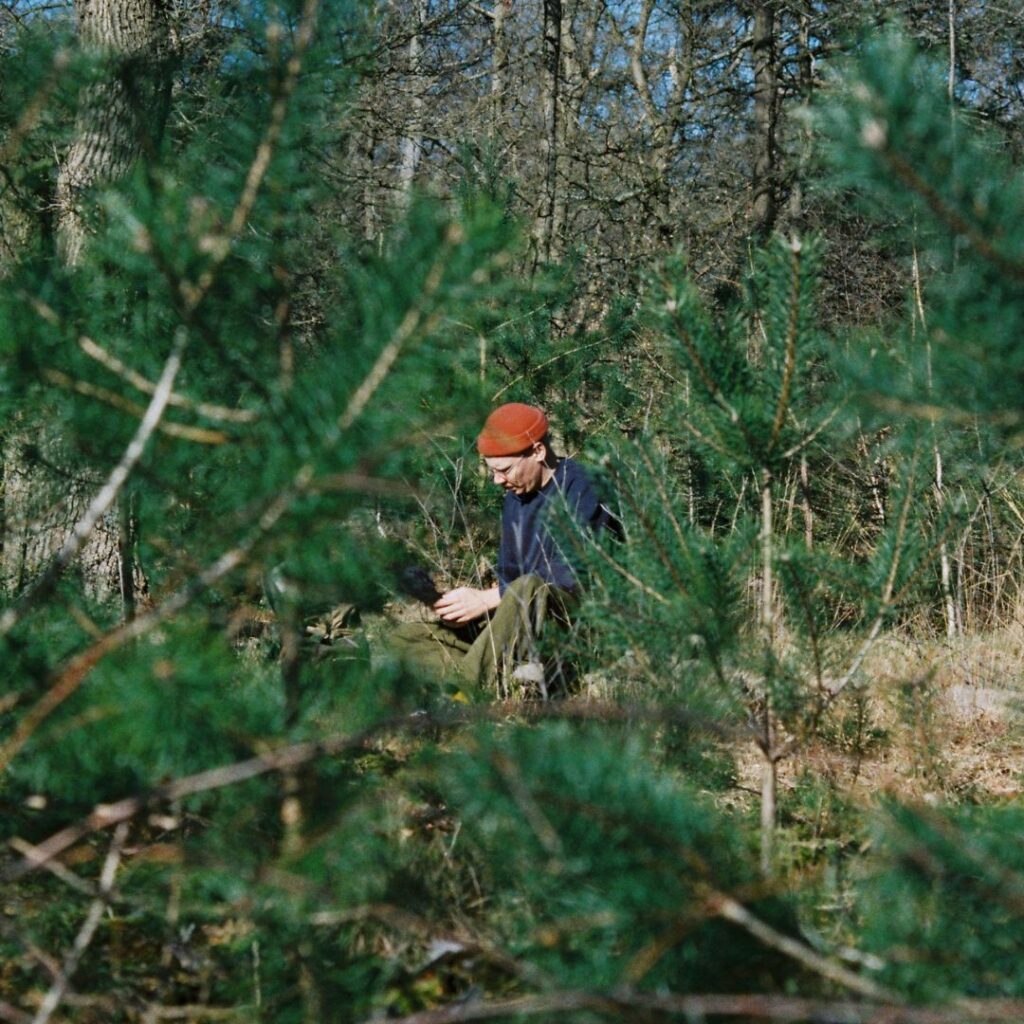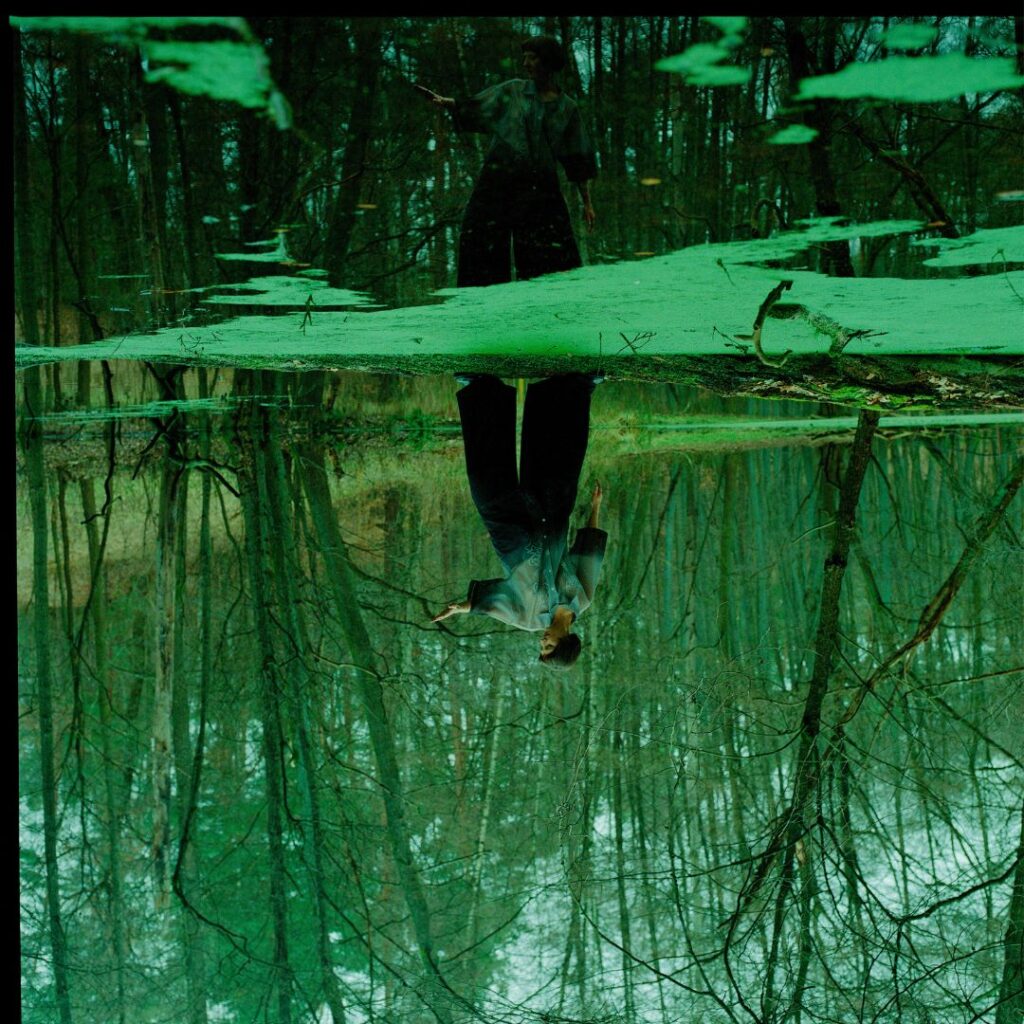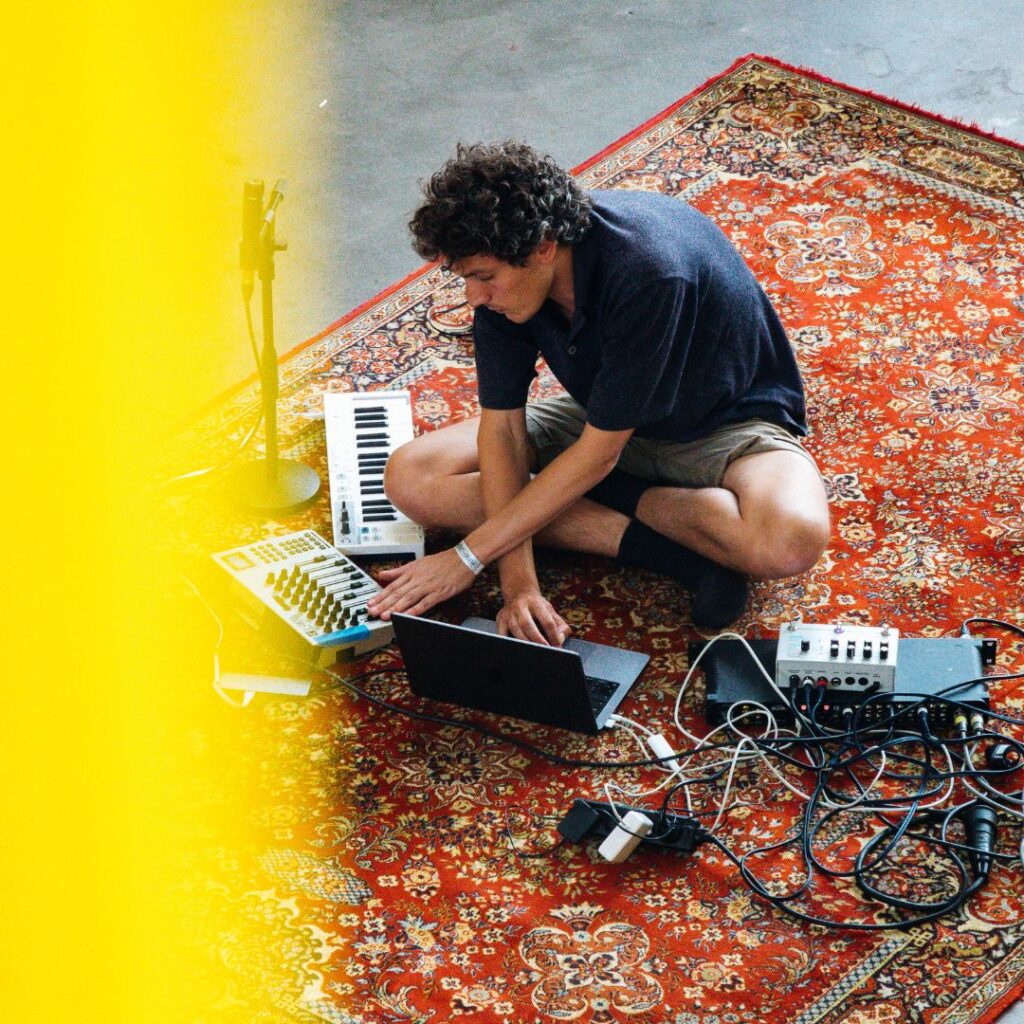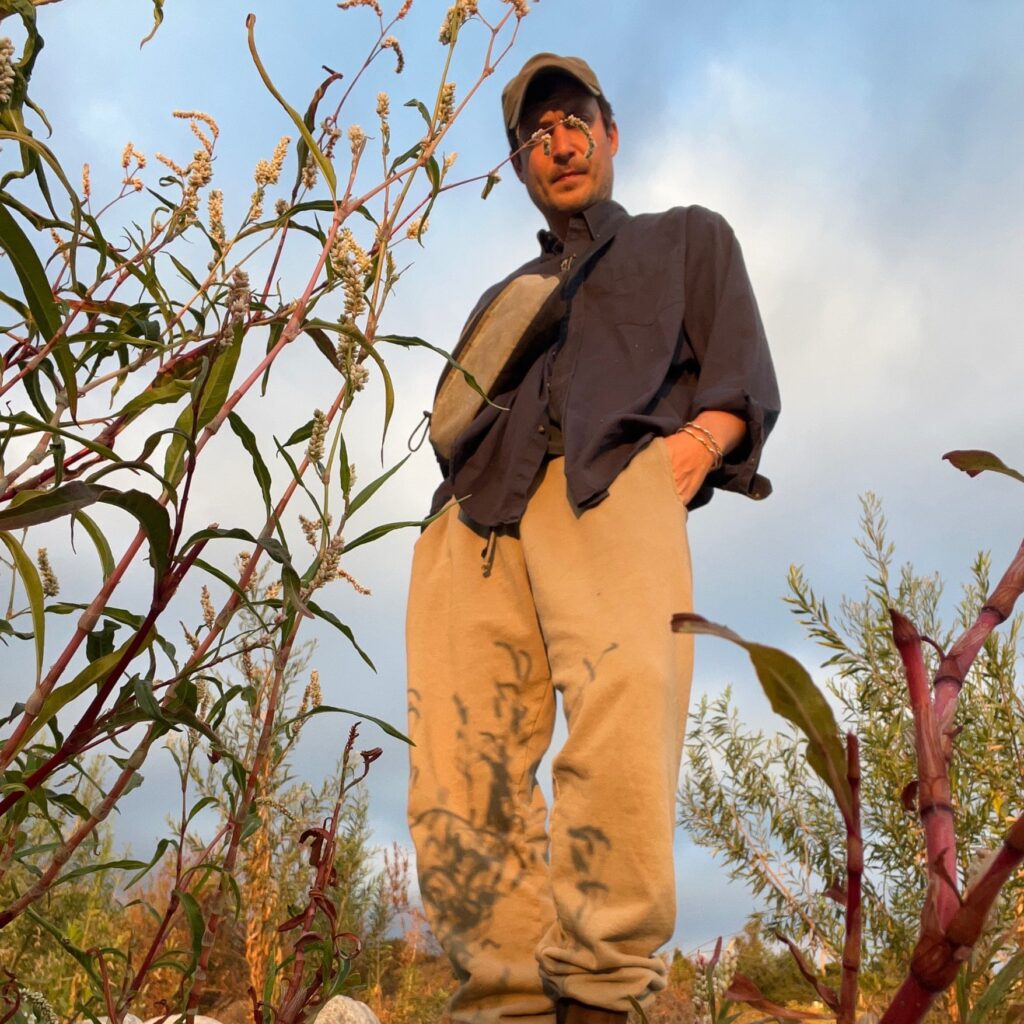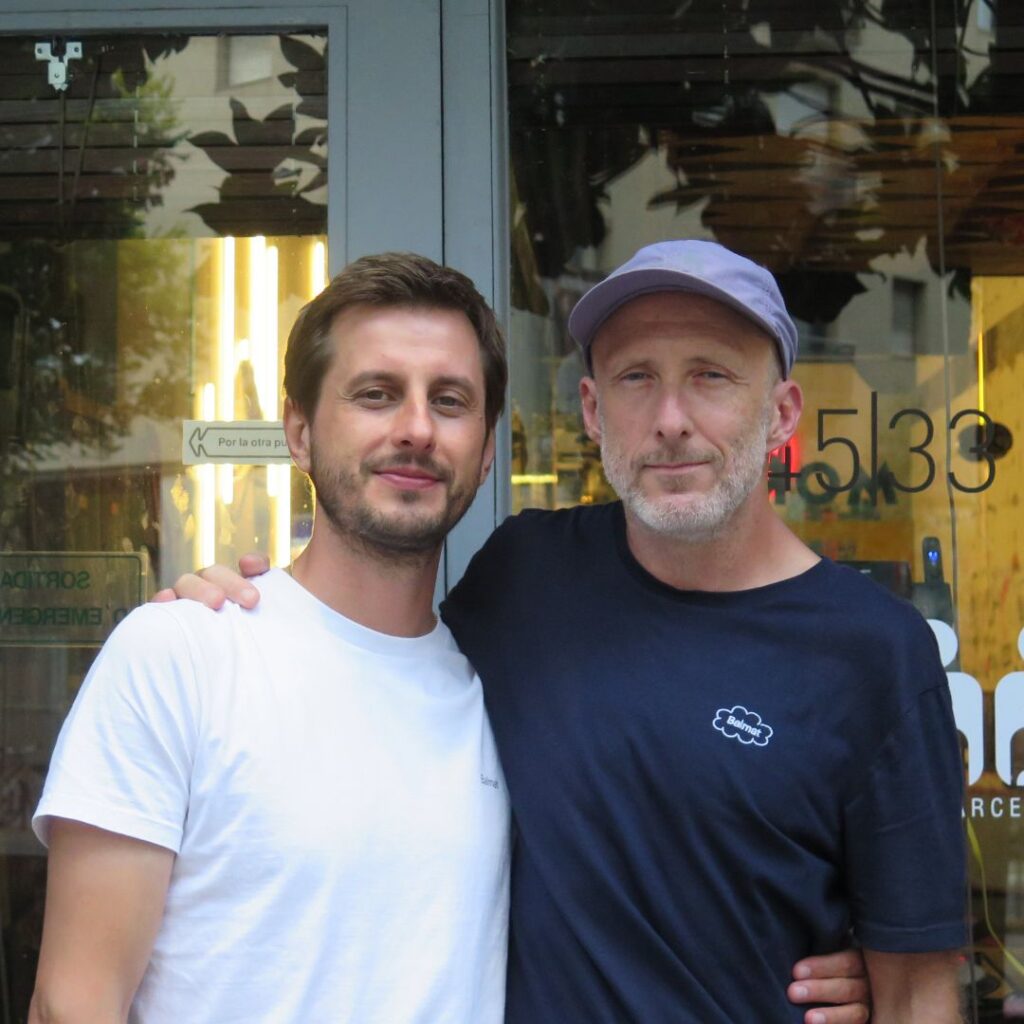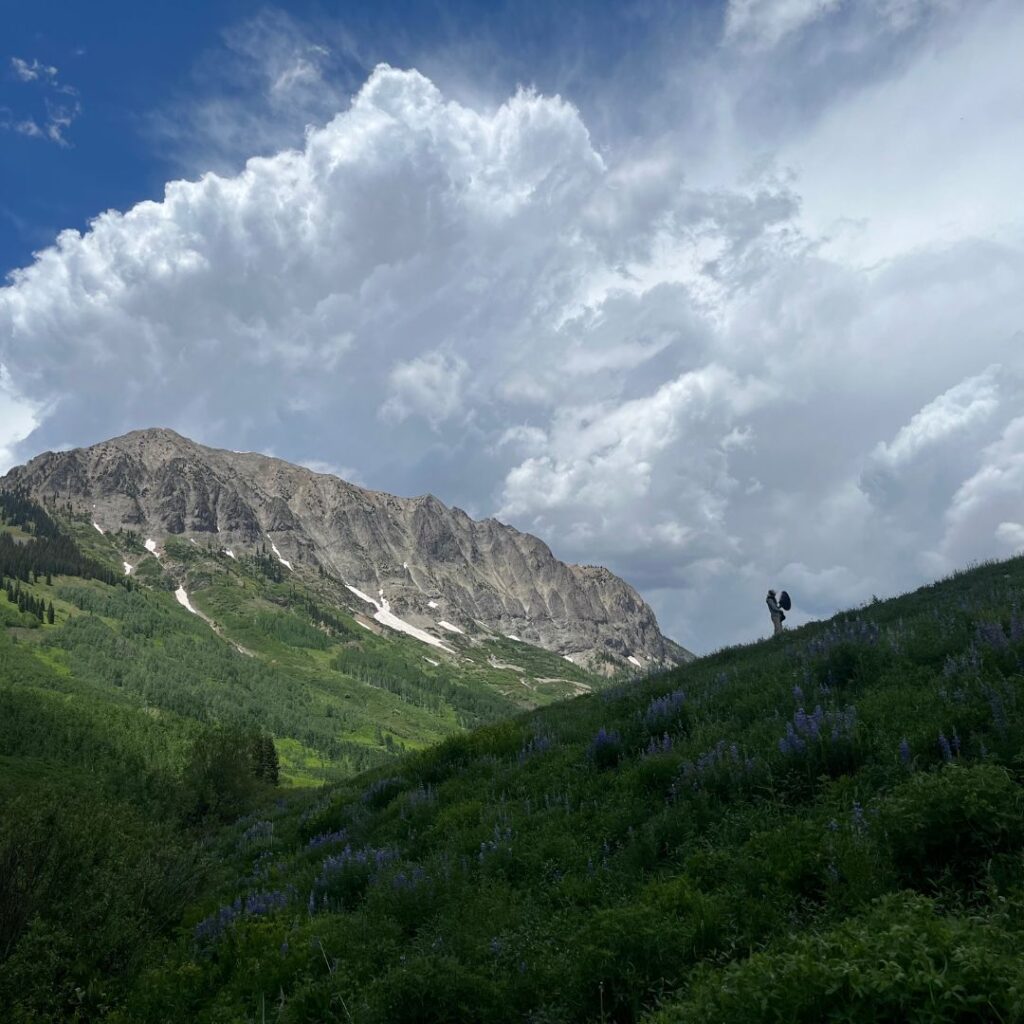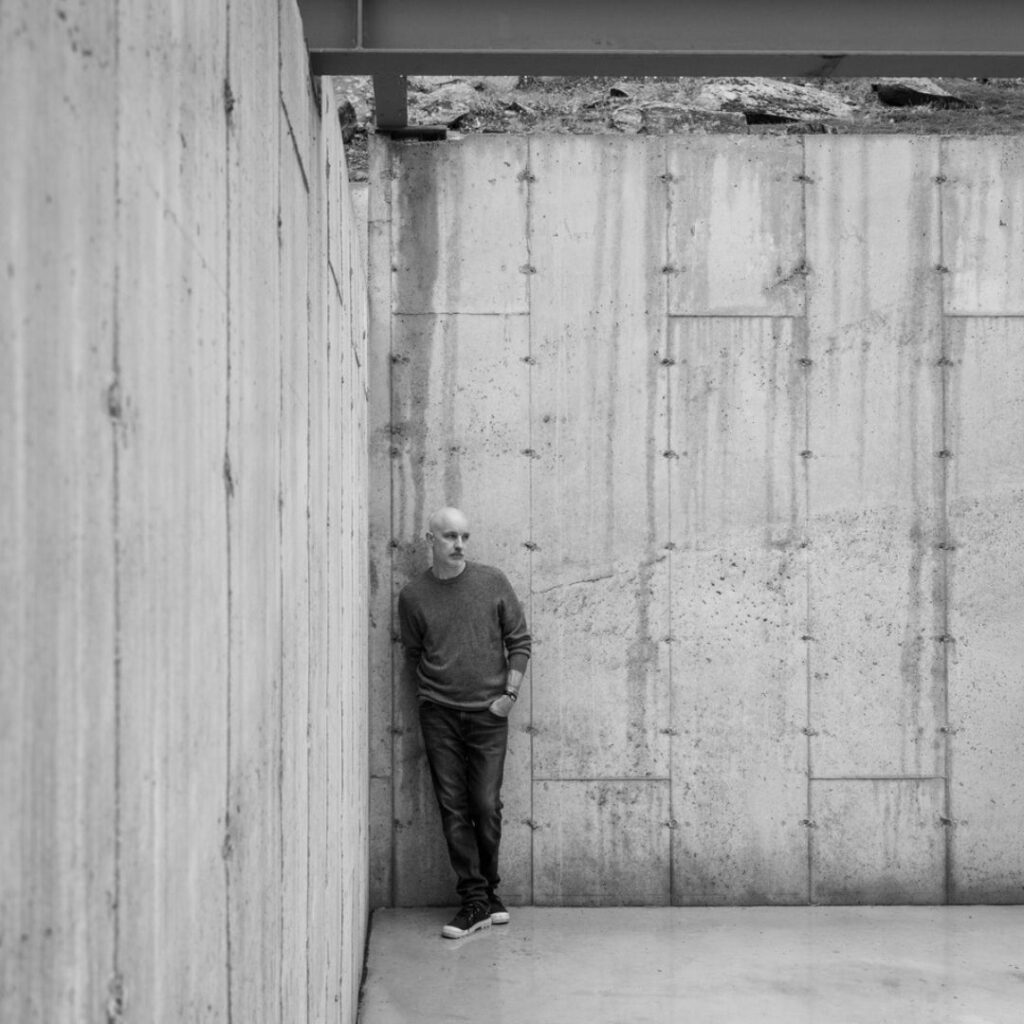feeling free with baal & mortimer
Baal & Mortimer is more than just a project by Alexandra Grübler. It’s an unbounded universe. A probe into the concrete possibilities between tone and image, language and body, research and movement.
In 2020, Baal & Mortimer released their debut album ‘Deixis’, followed up with an EP called ‘Torso Tapes’ released on Italic early this year. Both albums combine sensible atmospheric synthesizer sounds with downtempo rhythms and choir-like voices. Although there’s more to the music than how it sounds. These sonic explorations do not only wrestle with themes of autonomy, language, and identity; they also form an arresting, ever-evolving narrative teeming with equal bouts of expression and resistance.
Yet, sound is just one outlet for Alexandra Grübler. Movement, poetry and dance also inform the universe of Baal & Mortimer. Like different parts forming one whole, they’re also German, English, machine, human, male, female, ancient and now.
Why Baal & Mortimer?
I’ve had the name since I was 17. I remember feeling free of gender, of age, of the contemporary when making music, so originally back then I was interested in a name that would hide the number and sex of my project. I live by and fully support the spectrum, so I would like the music to speak for itself too and not because I’m read as presumably female.
I also wanted a hint to the ancient. Baal is a god and a demon in the old grimoires. Mortimer is some 14th century earl I read about. I wish I could remember why I chose that name. I think I just liked his name phonetically, sadly.
When did you start to make your own music and how has it evolved over the years?
It started with classical vocal training, piano lessons, choirs and such. I then started experimenting around with my own material but it all went very slowly.
On a technical level, I’m not even close to where I want to be, but it is nice to be in control of all the steps. It propels a trust forward, in my voice and the background horizon Baal & Mortimer has formed to my own existence. It’s its own sustaining safe place, one that demands me but also stabilizes, one that I can always return to.

Can you tell us more about your creative process?
It’s quite sculptural. In the beginning, there is usually a concept. Be it a written piece or a visual collage. Then, I accumulate and accumulate the sonic levels, until I have an undefined blob of sound. From there, I start chiseling away. Moulding, taking out, deleting, placing, curating that sonic marble block. I also tried the more carefully additive way, but it didn’t work, unfortunately.
Where do you draw your inspiration from?
From the details. Details in the texture and fracture of life in all its spectrum. Details that interrupt the narrative. But also from width. The meta, abstract thought. The reflection inherent to our species. Although ultimately, from the knowledge that all is not only ever changing but also finite, so you better get on with it.
One thing we noticed very distinctly on Deixis is that you distort your voice often. Why is this so?
I sometimes do, but actually not that often. On my new EP The Torso Tapes, the voice comes out even rawer. Although in Deixis, on tracks like Prostheses or Caryatid Fall, it’s pretty clean too. I distort it mostly for the choirs. I play with bending the status of male, female, human, machine. When you’re a project that only consists of the Self and believe in ultimate fluidity, you do start playing with multiple versions of yourself. But generally, the singing voice is pretty left alone. A little hall, a little reverb, that’s about it.
The human voice transmits it all: all the flaws, all the human condition. I don’t have the desire to cover that up with autotune or crazy plug-ins, although I see that being a trope of the contemporary. It just doesn’t interest me and I don’t find it subversive in a time where not using a IG filter already counts as radical.
Aside from music, are there other creative expressions you resonate with?
I feel it all feeds into the same channel. The sonic outlet is just one language or one expression of the same core for me. I like to move and do dance and body work, but I equally find drawings, diagrams and the visual side in general to be equally important.
There is less pressure on the non-music side because there is less emphasis on it, so it generally comes out more easily and freed of pressure. It’s a good counterweight but ultimately ends up in Baal & Mortimer anyways.
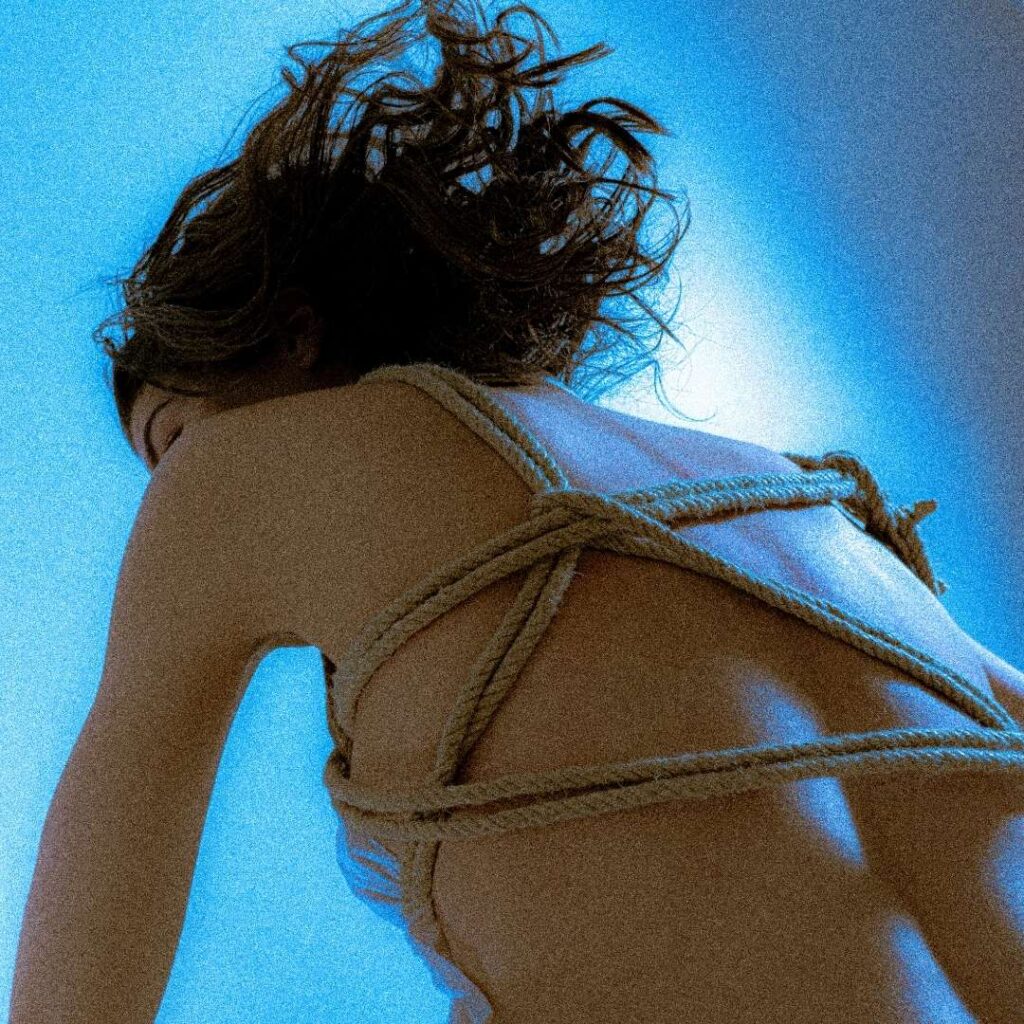
What drives you to make music?
It’s difficult. It’s a fight and struggle. It’s not therapy and it’s not even particularly fun often, especially when it comes to the “industry side“ of it. Yet it’s the only thing that I know will transgress me and will transform me.
It is the one duty I was given. It’s the one thing where I feel I have something to say that I can’t say through my body, thought or words. To then be so often hindered from it due to lack of payment or other struggles in the current system is beyond painful.
So, what does music mean for you?
It’s the complex, complicated bridge putting me in touch with existence and the lived world with a completely unknown outcome. It’s the place where I understand myself the least and where I need to sit with that loss of control and trust the outcome the most.
How would you describe your music to a stranger who has never heard it before?
Andreas Reihse from Kreidler wrote a beautiful press text recently and the last line became such a punch line for me: a Canterbury of the 23rd century. I loved that.
There is obviously an obsession with ancient worlds: their fiction and truth, medieval polyphony and so on. A focus on these raw, cracked themes. But then there is the desperation of the future, the direction of the coming age, with an exhausted climate but the persistent hope for a post-capitalist world, falling in slow motion.
What are you most excited to explore next, whether sonically or metaphorically?
A world post-covid, and how that changes production means and conditions. That is what I will explore by necessity. Sonically I would like to get deeper into writing my second album. I would like to have a different hardware set up for that. That will be exciting and will shift the sound too I reckon, which is beautiful.
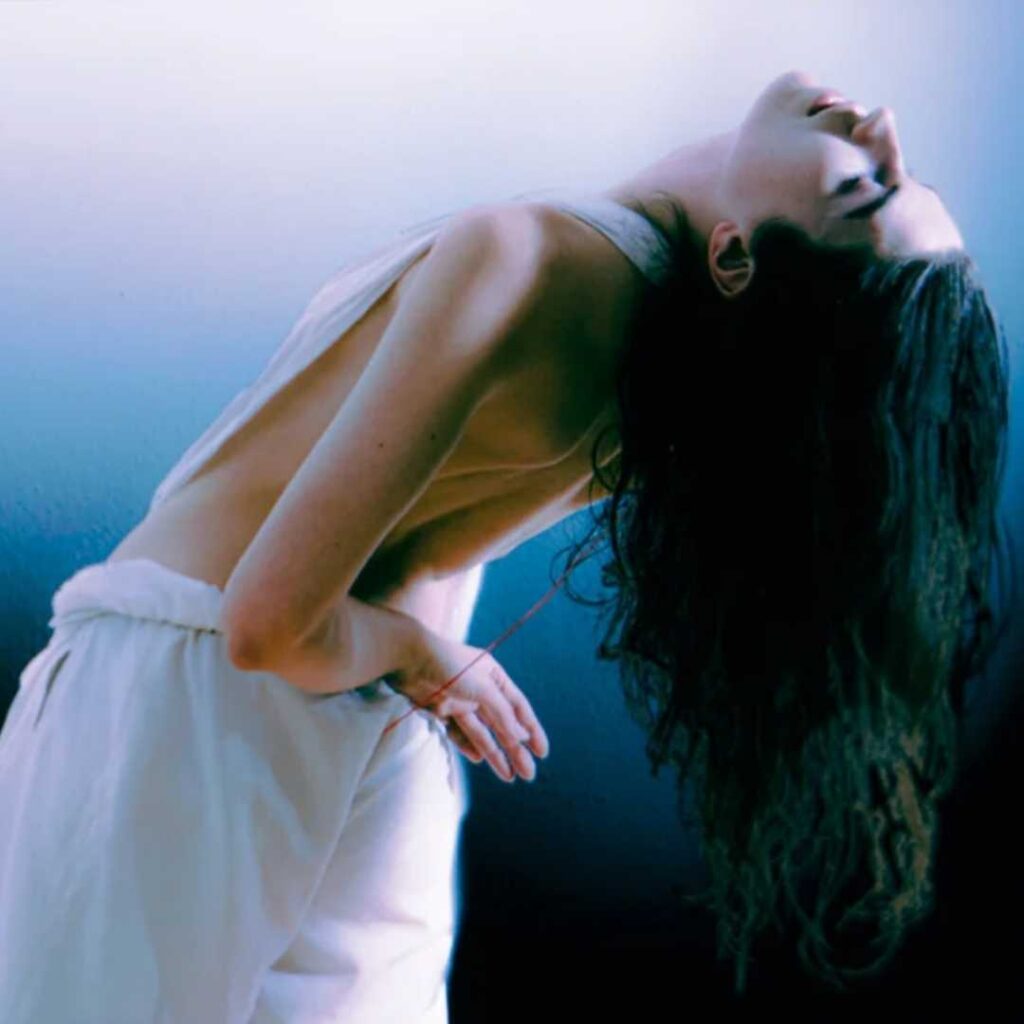
Is that how you’ve kept yourself busy during this interesting period?
That notion that people needed to think about the concept of “staying busy“ during Covid still baffles me. Many unideal things happened during Covid for me personally, as for countless and everyone, so it was more of an ongoing quest for survival and trying to find a moment of respite.
All the precariousness of the neoliberal late capitalist system was known before, but Covid bent it to a level that in combination with mental health ended up being very, very mediocre for some. But generally being busy is something that seems inherent to all people with an artistic output. The second your chores or day jobs end, you turn to the actual cause and task: the art. And that is not just the production itself, but also researching, preparing, defending the psychic space to be able to make it. Or literally trying to not be too exhausted by the rest to actually have the capacity to do it, because making music or art is, contrary to most beliefs, not only the living embodiment of the soul but also real work.
That’s really profound. On al lighter note, can you tell us more about yourself that you haven’t shared yet on the Internet?
I can write with my left and right hand at the same time. Wobbly, but still a party trick.
Pictures by Jelly Luise

